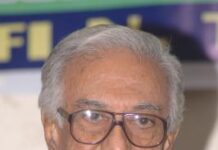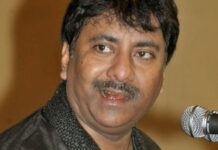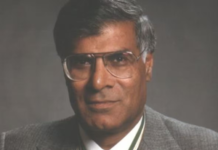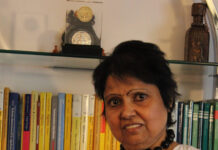By Jaideep Sarin
Chandigarh–In the hurly-burly of Indian politics, one name that stood out for a clean political innings would be that of Surjit Singh Barnala.
The tall politician from Punjab had the charm and a mild manner that endeared him to people and political personalities across state boundaries and party lines.
It was not without reason that Barnala, who became Union Cabinet Minister twice (in 1977 and 1998) and was Chief Minister of Punjab (1985-87) during turbulent times of Sikh militancy, was also one of the longest serving Governors in the country, had his name in the running for being the Prime Minister twice (in 1979 and 1996) and ran for the post of Vice President in 1997, but lost to Krishan Kant.
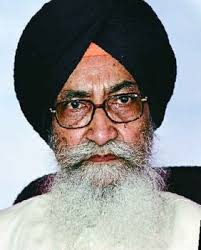
Barnala, who passed away in Chandigarh’s Post-Graduate Institute of Medical Education and Research (PGIMER) on Saturday at the age of 91, had remained dignified even after largely withdrawing from public life in the last five years.
During the height of terrorism in Punjab and just over a year after the Operation Bluestar ordered by the Indira Gandhi-led government to flush out heavily armed militants from inside the Golden Temple complex, where the holiest of Sikh shrines ‘Harmandir Sahib’ is located, Barnala became Chief Minister in September 1985 in elections following the accord between Prime Minister Rajiv Gandhi and Akali leader, Sant Harcharan Singh Longowal.
A leader of the Shiromani Akali Dal-Longowal, Barnala tried to restore normalcy in the state but in view of the continuing violence, his government was dismissed in May 1987 and the state brought back under President’s Rule.
Born on Oct 21, 1925 in Ateli Begpur village (now in Mahendergarh district of Haryana), Barnala did his graduation in law from Lucknow’s Christian College in 1946. He even participated in Mahatma Gandhi’s Quit India movement in 1942.
Barnala came into political life when he was elected as a legislator in Punjab in 1967 and served as Education Minister from 1969 to 1971. Elected to the sixth Lok Sabha in 1977, the general elections following the Emergency, and became Union Agriculture and Food Minister (1977-79) in the Janta Party government led by Prime Minister Morarji Desai.
After his stint in Punjab politics came to an end, Barnala was appointed the Governor of Tamil Nadu in 1990 but chose to step down the next year after refusing to dismiss the DMK government and was transferred to Bihar.
He was re-elected to the Lok Sabha in 1996 and 1998 from Punjab, and became Union Chemicals and Fertilisers Minister in the Atal Bihari Vajpayee government from 1998 to 2000.
Barnala would be known for his latter stints as governor of various states.
Becoming the the first governor of the then newly created state of Uttaranchal (now Uttarakhand) from November 2000 to January 2003, he returned to the south as Governor of Andhra Pradesh (2003-04) and then again of Tamil Nadu. Unlike his first short stint, he remained Governor of the southern state from 2004-2011, close to the leaders of both DMK and AIDMK, both of which had a bitter political rivalry otherwise.
He also held additional charge of governor in Orissa (now Odisha). He was also Lt governor of Andaman and Nicobar and Pondicherry (now Pudducherry).
A keen painter, Barnala also loved to read and travel.
During a few years that he spent in imprisonment during political life, including solitary confinement, Barnala ended up with a repertoire of 15 paintings.
In 1994, fed up with the state of public life, Barnala went incognito for a few months, travelling through various parts of India to experience the life of an ordinary man. He wrote a book, “Story of an Escape”, based on his experiences, including travelling on trucks and buses.
In Lucknow, where he had studied earlier, Barnala was detained by the local police, which mistook him for a terrorist. He later, as Tamil Nadu Governor, shared his experience while addressing students in Lucknow.
After ending his last assignment as Governor in 2011, Barnala tried to recreate political space for himself in Punjab and even headed the ‘Sanjha Morcha’, a front of four parties. But the ageing leader, given his gentlemanly ways, was never a match for wily politicians who had earlier rubbed shoulders with him. (IANS)




